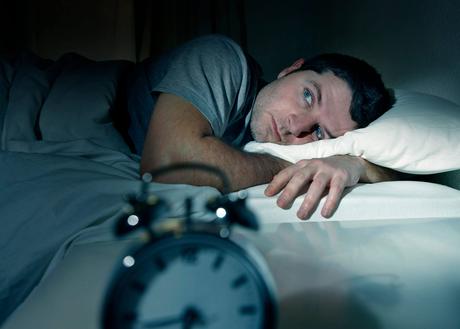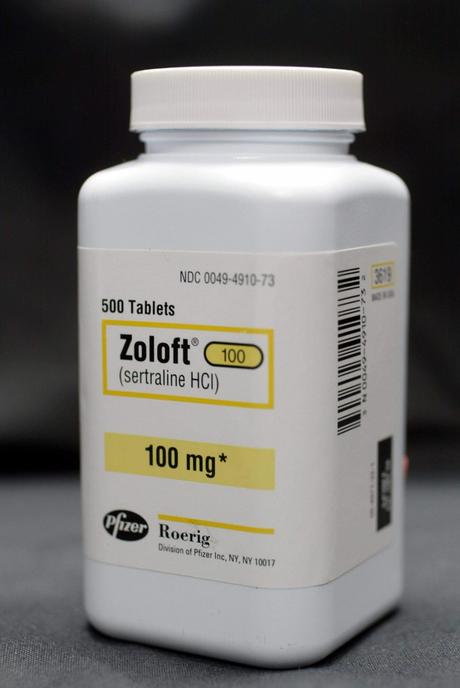There is a lot of psychiatric disorders in the world. Generally, they come in the forms of anxiety, post traumatic stres disorder, bipolar, schizoprenia, and depression. Moreover, Zoloft is hugely presribed to treat those mental illnesses. But in reality, millions of individual face Zoloft withdrawal symptoms.
They usually stop taking Setraline or Zoloft because it does not work for them. Another reason is they won’t depend on an antidepressant in their entire lives.
If you are one of them, you certainly think about tapering off of Zoloft soon. However, everything takes time, so does Zoloft discontinuation.
As you withdraw from Zoloft, you may find that it is really difficult at the early stage. Please bear in your mind, you can succeed from going off this medicine like what the others do. To handle it carefully, we have curated all the informations for you below.
Zoloft Withdrawal Symptoms List
 Zoloft withdrawal symptoms
Zoloft withdrawal symptoms
It must be understood that SSRI (Selective Serotonin Reuptake Inhibitor) or the Zoloft withdrawal is mostly challenging for many people. Do not worry too much!
It is basically not life-threatening as you may have thought. Before quitting Zoloft, you need to consult with the healthcare provider first.
Of course, you are unable to determine when you shall stop taking Zoloft by yourself. In most cases, the personal healthcare provider surely considers some factors such as your physiology, time span, dosage, exercise, and diet.
For information, an antidepressant discontinuation commonly leads to disturbing and unwanted side effects. But you can tackle them as long as you do not cease taking Zoloft abruptly.
If you lower or discontinue the dosage quickly, it possibly can cause certain physical and psychological risks. Some people who get off an antidepressant will fell all the symptoms and the others may just experience several symptoms.
They are truly normal. Here is a list of withdrawal symptoms.
1. Panic Attacks
 Zoloft withdrawal symptoms – Panic Attacks
Zoloft withdrawal symptoms – Panic Attacks
When it comes to the quitting Zoloft, your serotonin level becomes greatly unbalanced. Consequently, you will get more panicky than before.
Furthermore, the panic attack can vary from sheer to the intense. It is also characterised by rapid heart beat, sweating and pounding heart.
2. Weakness
Since you do not take Zoloft anymore, your body and mind tend to be weaker and more exhausted. It is the consequence that comes up after leaving this drug. Plus, you were accustomed to Zoloft for a long time. You may also have a low energy and struggle with tiredness.
3. Influenza-Like Syndrome
 Zoloft withdrawal symptoms – Influenza-Like Syndrome
Zoloft withdrawal symptoms – Influenza-Like Syndrome
When you stop using Zoloft, you probably feel like you got flu. Because its symptom can be very similar to the flu. For instance, you may suffer chill, nausea, cough, fever, and sore throat. If the symptom is quite extreme, you are going to be bedridden as well.
4. Sadness
Stopping Zoloft altogether gives different effects to the people. One of its reactions is you will be crying about the small things. Even, they don’t bother you at all.
Beside crying a lot, you likely feel helpless, sorrow, and alone. This overwhelming sadness significantly seeps into your mind and bones.
5. Anger
 Zoloft withdrawal symptoms – Anger
Zoloft withdrawal symptoms – Anger
Normally, people who cease consuming Zoloft will have an intense bursts of anger. This strong withdrawal effect may trigger you to get mad easily over nothing.
In some cases, all minor things set you off too fast. That means you have been to the extreme irritability period.
6. Insomnia
 Zoloft withdrawal symptoms – Insomnia
Zoloft withdrawal symptoms – Insomnia
The immediate effect of quitting Zoloft is you can not sleep well. On the other hand, certain people are able to sleep for prolonged time during their withdrawals. If you have an insomnia, you will stay up late in the night. Lack of rest and sleepless nights are the two most common things.
7. Headache
Lightheadedness typically occurs after wearing-off of Zoloft. The reaction can be shorter or longer time. Headache happens just because your brain start dealing with the absence of the drug. Plus, your mind feels constantly spin around. As the dizziness appears, you are getting unsteady and faint too.
8. Memory Problem
Many patients suffer memory impairment while stop taking Zoloft. The memory loss usually comes in the short and long term. Do not worry a lot! Because your memory is gonna be return to normal.
However, it can take an extended period of time. To keep your memory issue at a bay, be mentally active.
9. Suicidal Thoughts
 Zoloft withdrawal symptoms – Suicidal Thoughts
Zoloft withdrawal symptoms – Suicidal Thoughts
Painful Zoloft discontinuation may produce and increase the thoughts of death. It must be aware as an extreme ideation will lead patients to commit suicidal action. During the withdrawal, your negative thoughts intensify ten fold. Even, they includes self-harm as well.
10. Cramps
When you initially get-off Zoloft, cramps can be noticed throughout your entire body. You may feel them especially in the stomach and the other abdominal areas.
In addition to that, you can experience bloating. Luckily, your body system gradually relieves the cramps within a couple of weeks.
11. Anxiety
 Zoloft withdrawal symptoms – Anxiety
Zoloft withdrawal symptoms – Anxiety
Zoloft helps treat the social anxiety and stress. So when you stop consuming it, your serotonin level may decrease dramatically. The result is you tend to be more anxious and worried. Serious anxiety also heightens significant fear and unwanted thoughts which do not go away quickly.
12. Depersonalization
This symptom involves the disruption of your mental awareness, self identity, and awareness. Additionally, you simply feel unlike your own self and lose the reality. Moreover, it is mainly accompanied by detached, numb, and unreal feeling. Once your brain adapts to Zoloft withdrawal, your mind will be normal again.
13. Fatigue
 Zoloft withdrawal symptoms – Fatigue
Zoloft withdrawal symptoms – Fatigue
If you currently going through the Zoloft withdrawal, you definitely understand how it sucks. Quitting this antidepressant usually causes a severe fatigue. You may feel that you are super drained working out and doing your regular activities. Every step seems like in a slow motion.
14. Appetite Loss
In most cases, people gain weight easier and faster when taking Zoloft. It is actually caused by high-calorie food consumption, lack of exercise, and fluid retention. On the contrary if you come-off of Zoloft, your appetite will drop suddenly. It also induces a feeling of nausea.
15. Mood Changes
 Mood Changes
Mood Changes
After discontinuing Zoloft, your serotonin fluctuate easily. As the serotonin involves in managing your emotions, its imbalance can cause rapid mood swings. You likely have mixed and uncontrollable feelings. You may think that you are fine, angry, upset, and depressed at one time.
16. Sleepiness
Some people are so sleepy after going-off Zoloft and some aren’t. The drowsiness and sleepiness initially occurs when your brain start stabilising itself without an antidepressant drug. Plus, you are gonna sleep all the time and can’t get out of the bed.
17. Lack of Concentration
 [Zoloft withdrawal symptoms] Lack of ConcentrationSince your stress level is increasing, you can not think clearly even on the minor things. Every easy-peasy and simple task looks so hard to do. That’s why most people choose to quit their job while stopping Zoloft. Because the forgetfulness really puts them in trouble. Eventually, their minds return to be normal again.
[Zoloft withdrawal symptoms] Lack of ConcentrationSince your stress level is increasing, you can not think clearly even on the minor things. Every easy-peasy and simple task looks so hard to do. That’s why most people choose to quit their job while stopping Zoloft. Because the forgetfulness really puts them in trouble. Eventually, their minds return to be normal again.
Zoloft Withdrawal Symptoms Brain Zaps
 Brain Zaps
Brain Zaps
Zoloft is an antidepressant medicine which has longer life. As the effect, it persists in your body for days. If you quitting it,a deficiency of serotonin and chemicals happens in your brain. The quicker you discontinue Zoloft, the worse and more damaging the impacts will be.
“One of the most known phenomenons after withdrawing from Zoloft is brain zaps. For many people, their bodies and minds seem to be electrically jolted. The sufferers also report that brain shivers cause a tingling sensation. Sometimes, it is like riding on a thrilling rollercoaster.”
Some patients tells that they experience dizziness and white light bursts. Furthermore, electrical shocks are also indicated by a sudden buzz in their brains.
In a medical term, brain shocks are popularly recognized as paraesthesia. It is based on the definition of National Institute of Neurological Disorders and Stroke.
Electrical shocks last temporarily. These head shocks will subside completely when your brain gets ready to function properly without taking Zoloft.
Fortunately, brain zaps are not dangerous. Despite the fact, you must not ignore them. Since it is uneasy to understand, we have had a bunch of explanations here.
The Common Sensations of Brain Zaps
 The Common Sensations of Brain Zaps
The Common Sensations of Brain Zaps
- You get dizzy in a sudden way.
- Brain shivers are followed by fertigo. It means you feel of swaying or failing.
- Your stomach is so uncomfortable. Then, you likely experience of throwing up and awful nausea.
- You possibly suffer acute dizziness.
- Sinking feeling in your head. It can be described as the flashbulb is going off inside your brain.
- Your head seems to shake your brain.
- Brain zaps cause tinnitus or ringing in your ears. In general, it happens for just a few seconds.
- Sometimes, it also triggers an uncontrollable and extreme itching of skin. It typically occurs all over your body. In some cases, it only hits chest, face and arms.
- It is like you hurt funny-bone that lies in your brain. Plus, it usually whacks a few minutes or hours.
- You have the feeling of your own head is rapidly displaced.
Relieve the Brain Zaps
Honestly, there is no instant way to treat brain zaps. But you can do these methods to make your brain zaps less severe.
- If you feel the brain zap sensations are still bearable, it would be nice when you just wait and see. They basically will go away within a few days. In worse cases, they dissipate within a couple of weeks.
- But if the brain shivers are unbearably painful, please talk to your doctor and ask for returning your previous dosage then restart weaning off of Zoloft. Another step is to create a slower rate of tapering off.
How Long Do Zoloft Withdrawal Symptoms Last?
 How Long Do Zoloft Withdrawal Symptoms Last?
How Long Do Zoloft Withdrawal Symptoms Last?
Your body always gives a respond to the medical intake. So, when it is lack of the drug, it shall adapt with the new condition. It obviously needs time. Sudden halting a specific antidepressant and medicines can result in various symptoms.
Before stop taking Zoloft, psychiatrists tend to recommend a half year of therapy to their patients. It is done to avoid them from having a super hard withdrawal. If you went on Zoloft for more than six weeks, you are seriously suggested to quit it gradually.
Zoloft, Lexapro, and Repathahave have a different durations of symptoms for sure. We present the times which are needed to let yourself adjust the emotional and physical changes.
1. Lexapro
 Lexapro
Lexapro
This antidepressant drug is pretty famous. Plus, Lexapro is utilised for treating social anxiety disorder, panic disorder, depression, and obsessive-compulsive disorder.
Many people suffer from Lexapro withdrawal symptoms such as concentration issue, fatigue, insomnia, sweating, libido, and mood changes. When they go-off of Lexapro, the symptomps last for varying times.
Patients who are compelled to stop taking Lexapro will face the symptoms roughly for three months. But the Lexapro discontinuation symptomps can subside more than one year too. For most people, these symptoms can persist before three years. In a rare case, the sufferer is not fully “normal” for 4 years.
2. Repatha
 Repatha
Repatha
Evolocumab or Repatha is greatly used to reduce triglycerides and low-density lipoproteins (LDL) from blood. On the other hand, this heart medication helps increase good cholesterol level.
Lots of drug will cause side effects if you go on the normal dosages, including Repatha. They may be mild, moderate, or extreme. For the period, they can be permanent or temporary.
Repatha side effects are nausea, diarrhea, dizziness, muscle pain, cough, flu-like illness, confusion, bruising, disconcerting allergic reaction, and back pain.
A patient told he felt lethargic around 2-3 days. Another sufferer experienced pains for eight months. While, someone got cough and fever for approximately for three days.
3. Zoloft
“The discontinuation symptoms of Zoloft generally last from 2 to 3 weeks. Interestingly, Zoloft won’t cause an addiction after withdrawing from it. Because you still have an ability to taper off of it slowly but surely.”
Hence, Zoloft withdrawal symptoms may challenge you so hard. But you definitely can cope with the entire process. Last but not least, do not forget to seek support from your beloved ones and ask for clinician’s help.
